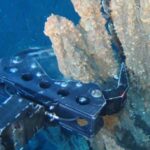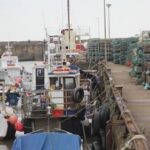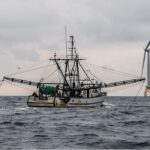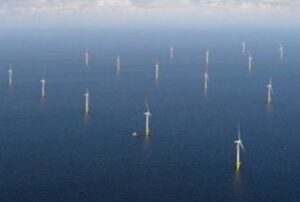Daily Archives: July 21, 2017
My Turn: Ben Landry: Have honest discussion on fishing
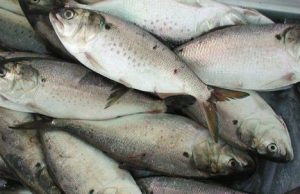 In his July 7 column (“Opinions on changes toquota are divided”), Capt. Dave Monti makes multiple inaccurate claims about the biology and management of menhaden — claims that someone who advises menhaden regulators at the Atlantic States Marine Fisheries Commission should know do not conform to the latest menhaden science. Mr. Monti mischaracterizes the health of the Atlantic menhaden stock when he says it is “on the rebound, due to the first-ever catch quota put into place in 2012.” As an ASMFC advisor, Mr. Monti should know that the 2012 catch quota was based on a stock assessment, later determined to be faulty, that showed menhaden was being overfished. That later-disproven science led the commission to unnecessarily slash menhaden catch rates by 20 percent, hurting those who make their living in the fishery. click here to read the rest, it gets better! 19:24
In his July 7 column (“Opinions on changes toquota are divided”), Capt. Dave Monti makes multiple inaccurate claims about the biology and management of menhaden — claims that someone who advises menhaden regulators at the Atlantic States Marine Fisheries Commission should know do not conform to the latest menhaden science. Mr. Monti mischaracterizes the health of the Atlantic menhaden stock when he says it is “on the rebound, due to the first-ever catch quota put into place in 2012.” As an ASMFC advisor, Mr. Monti should know that the 2012 catch quota was based on a stock assessment, later determined to be faulty, that showed menhaden was being overfished. That later-disproven science led the commission to unnecessarily slash menhaden catch rates by 20 percent, hurting those who make their living in the fishery. click here to read the rest, it gets better! 19:24
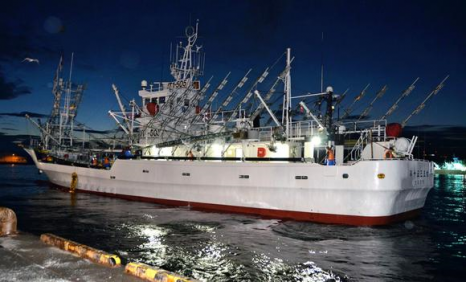
Tokyo’s proposal to cap saury catch tanks after neighbors slam it as unfair
The North Pacific Fisheries Commission held its annual meeting earlier this month to discuss an international framework to prevent overfishing. But its eight members were ultimately unable to agree on individual quotas for Pacific saury, a popular seasonal fish, amid strong opposition from China and other players. Tokyo had proposed annual caps of 242,000 tons on Japan’s catch, 191,000 tons for Taiwan and 47,000 tons for China. State-run China Central Television reported that Japan blamed China for the shrinking stock of saury, and said Tokyo’s proposal was “irrational” and unfairly tough on its neighbor. Chinese microblogging site Weibo erupted with disapproving posts. Users questioned why Japan should be allowed five times the catch when its population was just one-thirteenth of China’s, while others said Japan’s own problems with overfishing tuna gave it “no right to criticize other countries.” click here to read the story 18:18
Coast Guard crews work diligently to keep fishing boat afloat in the Gulf
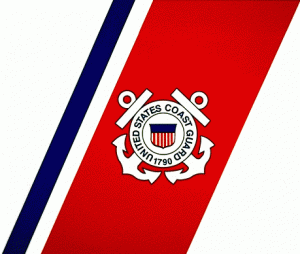 Additional Coast Guard crews have been sent to keep flooding at bay aboard a commercial fishing vessel with four people aboard, 30 miles northeast of Port Aransas, Friday. A Sector/Air Station Corpus Christi MH-65 Dolphin helicopter aircrew and a Station Port Aransas response boat crew each delivered dewatering pumps earlier in the morning, after the 95-foot Miss Tina II reported that they were taking on water. At 4:27 a.m., the captain of the Miss Tina II contacted Sector/Air Station Corpus Christi watchstanders to report the vessel was taking on water and was in need of assistance. Another aircrew returned to provide another dewatering pump later in the morning. A total of four dewatering pumps were delivered to the vessel and were keeping up with the ingress of water. A Station Port O’Connor response boat crew relieved the Port Aransas crew and the Coast Guard patrol boat was diverted to assist. The Tin Can, the sister boat of the Miss Tina II, is towing the boat to Palacios. The Station Port O’Connor response boat crew is escorting both boats. -USCG- 16:19
Additional Coast Guard crews have been sent to keep flooding at bay aboard a commercial fishing vessel with four people aboard, 30 miles northeast of Port Aransas, Friday. A Sector/Air Station Corpus Christi MH-65 Dolphin helicopter aircrew and a Station Port Aransas response boat crew each delivered dewatering pumps earlier in the morning, after the 95-foot Miss Tina II reported that they were taking on water. At 4:27 a.m., the captain of the Miss Tina II contacted Sector/Air Station Corpus Christi watchstanders to report the vessel was taking on water and was in need of assistance. Another aircrew returned to provide another dewatering pump later in the morning. A total of four dewatering pumps were delivered to the vessel and were keeping up with the ingress of water. A Station Port O’Connor response boat crew relieved the Port Aransas crew and the Coast Guard patrol boat was diverted to assist. The Tin Can, the sister boat of the Miss Tina II, is towing the boat to Palacios. The Station Port O’Connor response boat crew is escorting both boats. -USCG- 16:19
Study: Sea Level Rise Revised Downward
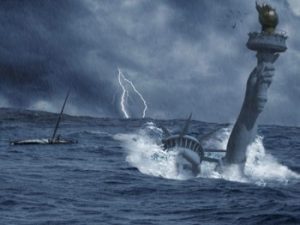 If I had not looked past the headline of the press report on a new study, I would have just filed it under “It’s worse than we thought”. A new study in Nature reported on July 17 carried the following headlines: “Satellite snafu masked true sea-level rise for decades” “Revised tallies confirm that the rate of sea-level rise is accelerating as the Earth warms and ice sheets thaw.” When I read that, I (like everyone else) assumed that corrections to the satellite sea level data since 1993 have now led to a revised trend toward faster (not slower) sea level rise. Right? Wrong. click here to read the story
If I had not looked past the headline of the press report on a new study, I would have just filed it under “It’s worse than we thought”. A new study in Nature reported on July 17 carried the following headlines: “Satellite snafu masked true sea-level rise for decades” “Revised tallies confirm that the rate of sea-level rise is accelerating as the Earth warms and ice sheets thaw.” When I read that, I (like everyone else) assumed that corrections to the satellite sea level data since 1993 have now led to a revised trend toward faster (not slower) sea level rise. Right? Wrong. click here to read the story
Sea Level Rise Accelerating? Not. – This question all revolves around whether the rate of sea level rise is relatively steady, or whether it is accelerating … so how do we tell the difference? click here to read the story 13:21
Shrinking northern shrimp catch sparks worry for one of Eastern Canada’s most important fisheries
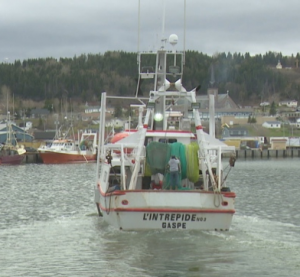 The northern shrimp population in the Gulf of St. Lawrence has dropped by 50 per cent in the past 10 years, according to Fisheries and Oceans Canada. Commercial fishermen brought in roughly 30 per cent fewer shrimp between 2015 and 2016. While the exact portrait of what is happening with shrimp stocks may be complex, the warming temperatures of the Gulf of St. Lawrence have been fingered as a potential problem for northern shrimp, a cold-water-loving shrimp species found in the northwest Atlantic. Another factor is the increasing number of redfish, also known as the ocean perch, a species that prefers warmer temperatures. Redfish compete with the shrimp for food when they are young, and feed on them when they are older. click here to read the story 11:08
The northern shrimp population in the Gulf of St. Lawrence has dropped by 50 per cent in the past 10 years, according to Fisheries and Oceans Canada. Commercial fishermen brought in roughly 30 per cent fewer shrimp between 2015 and 2016. While the exact portrait of what is happening with shrimp stocks may be complex, the warming temperatures of the Gulf of St. Lawrence have been fingered as a potential problem for northern shrimp, a cold-water-loving shrimp species found in the northwest Atlantic. Another factor is the increasing number of redfish, also known as the ocean perch, a species that prefers warmer temperatures. Redfish compete with the shrimp for food when they are young, and feed on them when they are older. click here to read the story 11:08

140,000 live Canadian lobster sold to China in 24 hours
Chinese buyers snapped up more than 140,000 live Canadian lobsters within 24 hours last week through a Beijing-based online retailer, and the demand can only grow, says a New Brunswick supplier. The live lobsters came from a variety of sources for the sale July 14 on jd.com, one of the largest e-commerce websites in the world. According to a news release from the company, the surge in lobster purchases was part of a sale promoting fresh food from Canada, which also included cherries and blueberries among the offerings. click here to read the story 10:30
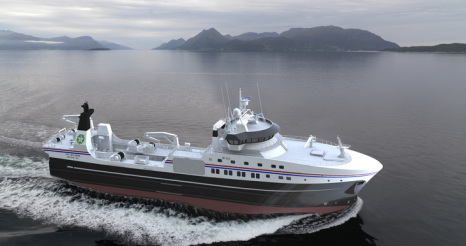
Pacific Seafood Processor’s Association seeks probe into America’s Finest foreign steel
The trade group representing Alaska’s onshore fish processing plants is challenging a request for an exemption to a federal law limiting the amount of foreign steel allowed in fishing vessel construction. The Pacific Seafood Processor’s Association has major issues with the request for a Jones Act waiver sought by Fisherman’s Finest, the owner of the embattled flatfish factory trawler American’s Finest, and its builder, the Washington shipyard Dakota Creek Industries. The 261-foot vessel is nearly complete at a cost of at least $60 million, and cannot fish in U.S. waters without the waivers. PSPA’s members include Unisea and Westward in Unalaska, and most of the other fish processors in Alaska. click here to read the story 09:52
Australia Seeks to Extend Commercial Fishing in Protected Waters
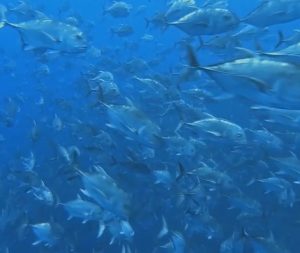 Australia plans to allow fishing across 80 percent of its protected maritime sanctuaries, the government said on Friday in a proposal that would vastly extend commercial activity in the world’s largest marine-reserves network. If the plan, backed by the government of Prime Minister Malcolm Turnbull, is approved by Parliament, it would be the first time a nation has scaled back its regulations in protected maritime areas. The move could potentially set a precedent for other countries, including the United States, which are considering similar reversals. (enviro’s are opposed) “This is a huge step backwards for marine protection,” said Richard Leck, head of oceans for WWF-Australia, an affiliate of the World Wildlife Fund. click here to read the story 09:00
Australia plans to allow fishing across 80 percent of its protected maritime sanctuaries, the government said on Friday in a proposal that would vastly extend commercial activity in the world’s largest marine-reserves network. If the plan, backed by the government of Prime Minister Malcolm Turnbull, is approved by Parliament, it would be the first time a nation has scaled back its regulations in protected maritime areas. The move could potentially set a precedent for other countries, including the United States, which are considering similar reversals. (enviro’s are opposed) “This is a huge step backwards for marine protection,” said Richard Leck, head of oceans for WWF-Australia, an affiliate of the World Wildlife Fund. click here to read the story 09:00




































